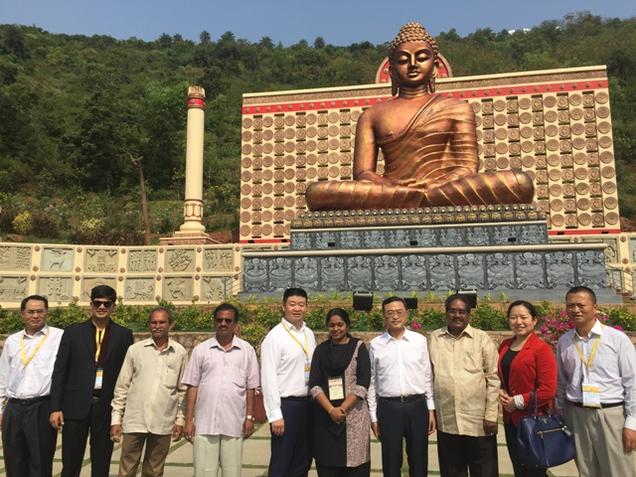Visakhapatnam:
Around 100 acres of land has been identified by the district administration at Yerrakonda near Simhachalam for setting up India’s first exclusive Centre for Mangroves and Coastal Ecology under the Institute of Forest Biodiversity which is under the aegis of the Indian Council of Forestry Research and Education (ICFRE).
Vizag district collector N Yuvaraj said the foundation stone would soon be laid at the site. It would be a centre dedicated to study and research on mangroves ecosystem. “Considering that mangroves have been fast depleting due to shore-based development, the Vishakhapatnam Port Trust (VPT) would take up professional regeneration and replantation of mangroves in 50-acres of area within the port at its own expenditure,” said VPT chairman M T Krishna Babu.
Both the district collector and VPT chairman were speaking at the inaugural of the second national seminar on conservation, restoration and sustainable management of mangrove forests in India, hosted by the Institute of Forest Biodiversity (IFB), Hyderabad, being held in the Port City from June 15-16.Mangroves are trees that grow in coastal saline or brackish water in estuarine environment, where marshy soil conditions prevail.
The district collector further said, “The Kerala model of identifying, notifying and conserving mangroves should be replicated in the rest of India. As a case study, AP forest department should also study it and begin the conservation work from Vizag. The district administration would provide all support.”
VPT chairman Krishna Babu said there’s a need for a systematic action plan to improve the biodiversity index of various places, especially with respect to the native species. “Awareness generation should be through introduction about biodiversity in school curriculum, organising field trips and quiz and so on. When it comes to mangroves, around 100 years ago, Vizag was full of it. But now, most of it has been lost.
Mangroves ecosystem support many species to thrive, absorb carbon dioxide and help tackle beach erosion. As a first step towards conservation, we need to identify and notify the mangrove patches on government lands (irrespective of their being patta lands) as reserve forests and conserve them. Also, since VPT has been held responsible for disappearance of mangroves due to our shore-based development works, we will therefore regenerate 50 acres of mangroves in our land with our own expenditure and take technical support from the scientists of the forest institutes concerned.”
At his welcome address, GRS Reddy, director, Institute of Forest Biodiversity, thanked the district administration for allotment of 100-acre land to set up the mangroves research institute and said, “Considering the ecological importance of mangroves and the need for their conservation, an institute exclusively for research on mangroves is needed in Vizag. Work would begin this year and the foundation stone laying may happen by this month-end.”
D Jayaparasad, additional principal chief conservator of forests, IFB and organising secretary of the seminar stated that Vizag has been chosen for setting up the mangroves research institute as it’s situated in the middle of the eastern coast and there’s a vast stretch of mangroves (59 %) on the east coast with 44% being in the Sundarbans. An interesting talk on ‘Mission Mangroves’ was delivered by the guest of honour and district collector of Kannuar district P Bala Kiran. He deliberated on how 600 acres of land was surveyed and notified as mangroves reserve forest and how the remaining 1225 acres are being acquired from private parties so that the mangrove lands can be conserved.
Another speaker Surendra Kumar, IFS and director of Institute of Wood Science and Technology, Bangalore said India has around 4,640 square kilometre of mangrove area and recently 112 sq km were added. “Three districts have registered good growth including Krishna district, Andaman and Nicobar Islands and Raigarh district, each adding around 15 sq kilometre mangroves. For better mangroves conservation, all stakeholders should be involved together,” he said.
The inaugural session was followed by technical session, where K Kathiresan, professor of Annamalai University delivered his keynote address on ‘Mangrove Forests in India: Conservation, Restoration and Sustainable Management’.
source: http://www.timesofindia.indiatimes.com / The Times of India / News Home> City> Visakhapatnam / Sulogna Mehta, TNN / June 16th, 2016

